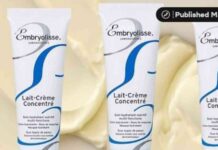Moderna Faces Backlash for Offering £2,000 to Children in UK Covid Trial
In a recent development, Moderna has come under fire for a controversial WhatsApp message offering children a substantial £2,000 incentive to participate in a clinical trial for its Covid-19 booster vaccine in the UK. The trial, known as NextCOVE, aimed to recruit participants aged 12 and older in various locations in the UK, the US, and Canada.
The message, posted by a pediatrician from an undisclosed hospital in the UK, explicitly mentioned the monetary compensation and concluded with an invitation for children to join the trial. This action raised concerns within the healthcare community, prompting the Children’s Covid Vaccines Advisory Council to launch an investigation.
The independent group, comprised of health professionals and scientists who question government guidance on Covid vaccines for children, uncovered that the research ethics committee overseeing the trial had reservations about the financial incentive. There were fears that offering such a large sum of money could be perceived as coercion, potentially influencing children’s decision to participate in the study.
This incident has sparked a debate around the ethical implications of incentivizing children to take part in clinical trials, particularly for vaccines. While incentives are commonly used to encourage participation and offset expenses, the amount offered by Moderna raised eyebrows and prompted calls for stricter guidelines on recruitment practices for pediatric trials.
Subheadings:
Controversy Over Incentivizing Children in Clinical Trials
Ethical Concerns and Industry Standards
Calls for Transparency and Regulation in Pediatric Research
Controversy Over Incentivizing Children in Clinical Trials
The issue of offering financial incentives to children for participation in clinical trials is a sensitive topic that has divided opinions within the medical community. Proponents argue that incentives can help overcome barriers to recruitment, such as time commitment, travel costs, and inconvenience, especially for pediatric trials that require parental consent.
However, critics contend that offering monetary rewards to children could compromise their autonomy and lead to coercion. Children may feel pressured to participate in a trial solely for the financial gain, without fully understanding the risks and benefits involved. This raises questions about the ethical responsibility of pharmaceutical companies and research institutions in ensuring voluntary and informed consent from vulnerable populations.
Ethical Concerns and Industry Standards
In the case of Moderna’s Covid-19 booster vaccine trial, the use of a £2,000 incentive to attract children as participants has raised ethical concerns regarding the recruitment practices for pediatric research. The Children’s Covid Vaccines Advisory Council’s investigation highlighted the need for clearer guidelines and oversight to prevent undue influence on minors in clinical trials.
Industry standards for incentivizing participants in clinical trials vary, with some companies opting for non-monetary rewards such as gift cards, vouchers, or travel reimbursements. These alternatives are meant to incentivize participation without crossing ethical boundaries or compromising the integrity of the research process.
Calls for Transparency and Regulation in Pediatric Research
The controversy surrounding Moderna’s recruitment practices underscores the importance of transparency and regulation in pediatric research, particularly when it comes to incentivizing children to participate in clinical trials. Stakeholders in the healthcare industry, including regulatory bodies, ethics committees, and advocacy groups, must work together to establish clear guidelines and safeguards to protect vulnerable populations.
Moving forward, there is a need for greater scrutiny and accountability in the recruitment of children for clinical trials, ensuring that their participation is based on informed consent and ethical principles. By upholding the highest standards of research ethics and transparency, we can safeguard the well-being of children and uphold the integrity of scientific inquiry in the pursuit of medical advancements.

















